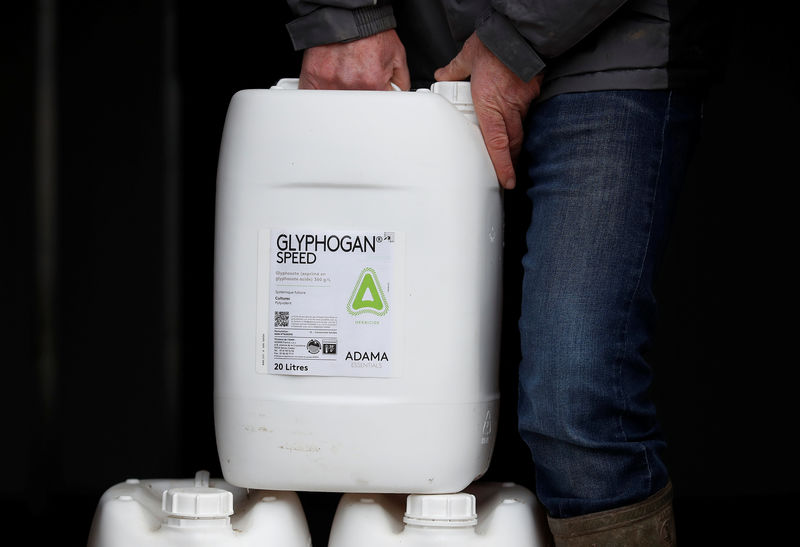By Sybille de La Hamaide
NIOVILLE, France (Reuters) - President Emmanuel Macron's promise to rid France of controversial weedkiller glyphosate within three years has left some farmers in the European Union's largest grain producing country on edge.
After intense debate, the EU this week cleared U.S.-developed glyphosate for another five years despite concerns that the most widely used pesticide in the world can cause cancer.
EU rules allow France to unilaterally ban the substance, however, an approach Macron has decided to take. He has given farmers and researchers three years to come up with an alternative.
"Three years is too short," said Herve Fouassier, 45, who runs a 200-hectare farm in Loiret, south of Paris.
Like French farm unions, Fouassier does not believe a solution can be found in time.
"We are ready to hear the wishes of society which wants less use of crop protection products, but give us a little time to adapt," he said, standing in a mustard field treated with glyphosate.
French crop growers said this week even five years is insufficient time because there is currently no alternative economically and environmentally viable alternative to the weedkiller.
Glyphosate was developed by U.S. chemical maker Monsanto (NYSE:MON) under the brand Roundup. It is now off-patent and marketed worldwide by dozens of other chemical groups including Syngenta and Dow Agrosciences.
Glyphosate's worldwide success is linked to its low cost; farmers can kill weeds by spraying the chemical on their fields instead of ploughing the soil several times to remove weeds.
It has also attracted gardeners, public park managers and railway operators, intent on getting rid of unwanted grasses. It is so widely used that manufacturers say glyphosate covers a third of French farmland.
Concerns about its safety emerged when a World Health Organization agency concluded in 2015 that it probably causes cancer.
Other groups, such as the European Chemicals Agency, have since disputed those findings, saying there is no evidence linking glyphosate to cancer in humans. But worries persist.
ISOLATED
In rocky soils or where weeds are deeply rooted, farmers say it would be too hard to do without it and that fields would have to be left fallow. Farmers must wear a protective mask, apron and gloves when spraying the chemical.
They also fear that if a cheap alternative is not found before the deadline, France will be isolated in the EU, where competitors will be allowed to use glyphosate for another two years, and against larger producers such as the United States or those in Latin America, where it is widely used.
The ban could cost the French grains sector 1.1 billion euros ($1.3 billion) and 900 million euros for wine makers because of lower yields and exports, polling firm Ipsos found in a study commissioned by glyphosate makers.
Marc Leprince, 34, who manages a 210-hectare farm in the Beauce grain region, is less concerned.
He grows half of his output following organic rules and the rest in conventional farming, all without using glyphosate.
Leprince uses long crop rotations, increased varieties and weeds mechanically and manually, techniques which increase costs. But he believes it's worth it for his own health and that of consumers.

"What consumers must realise is that food will be more expensive because costs linked to these techniques will need to be reflected in the price of the end products," he said, referring to the likely impact of the glyphosate ban.